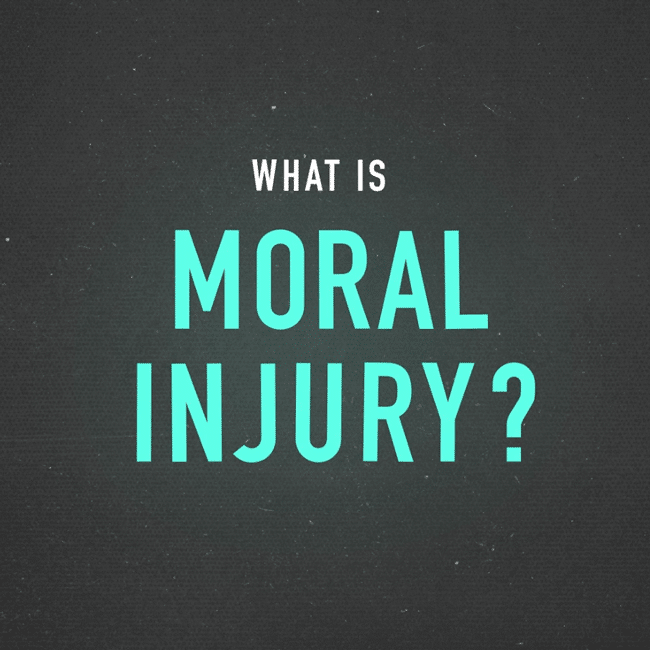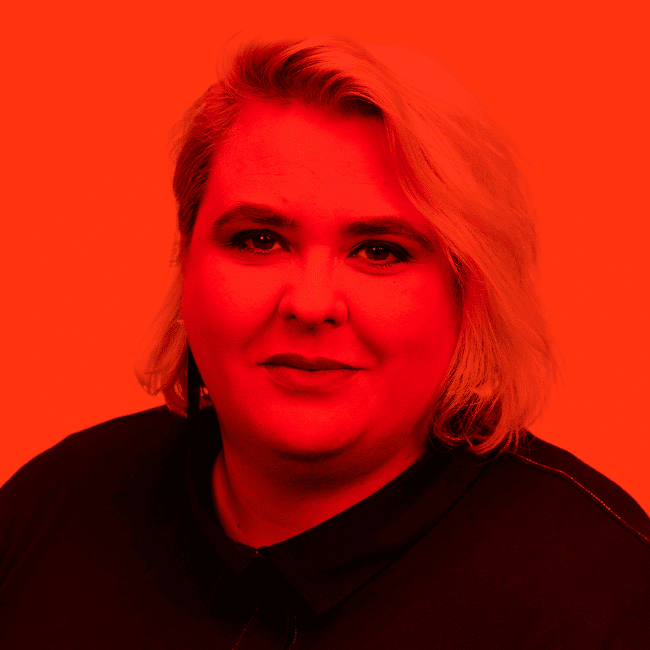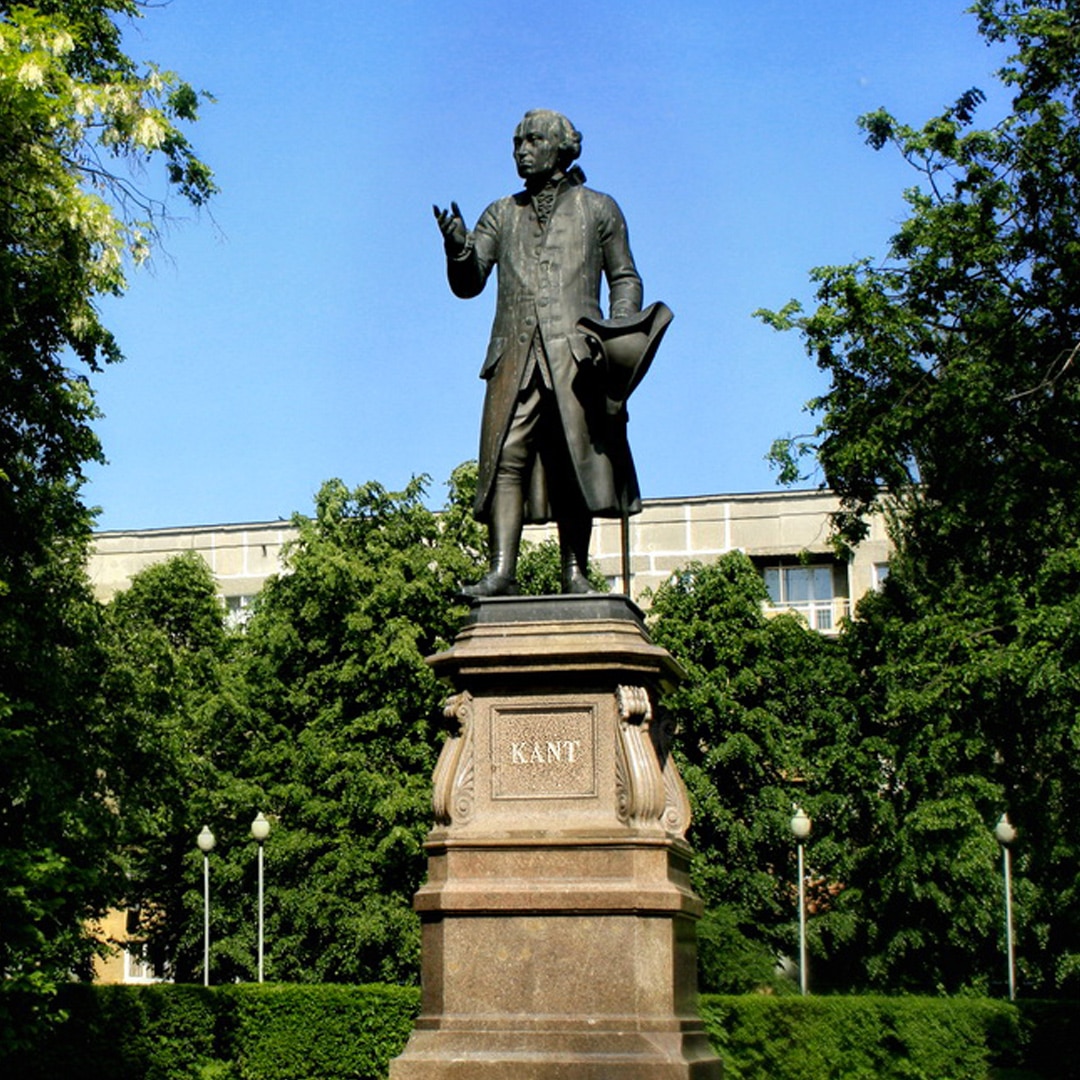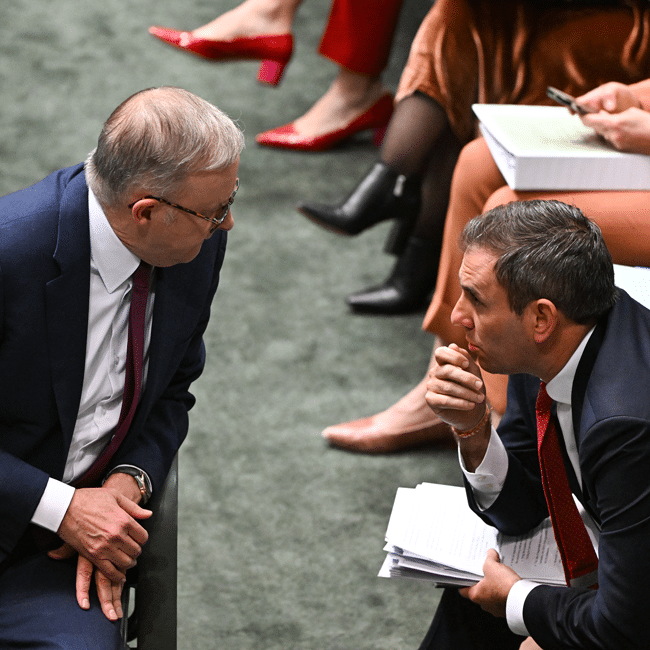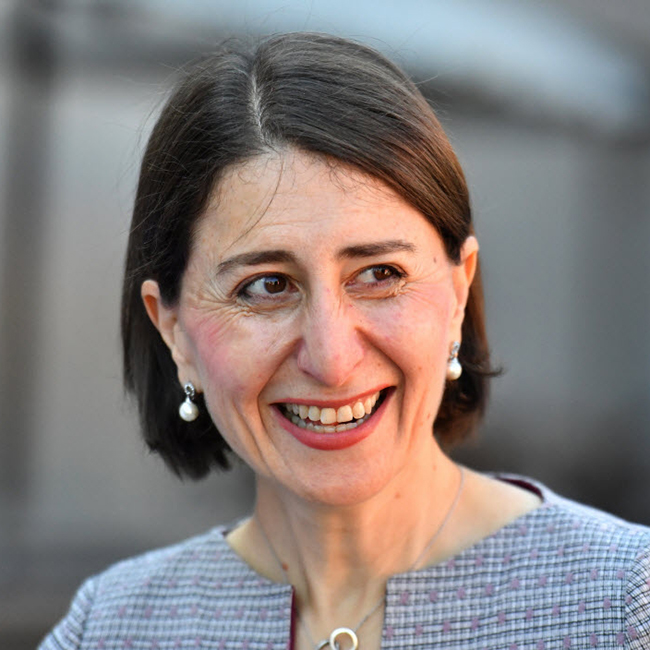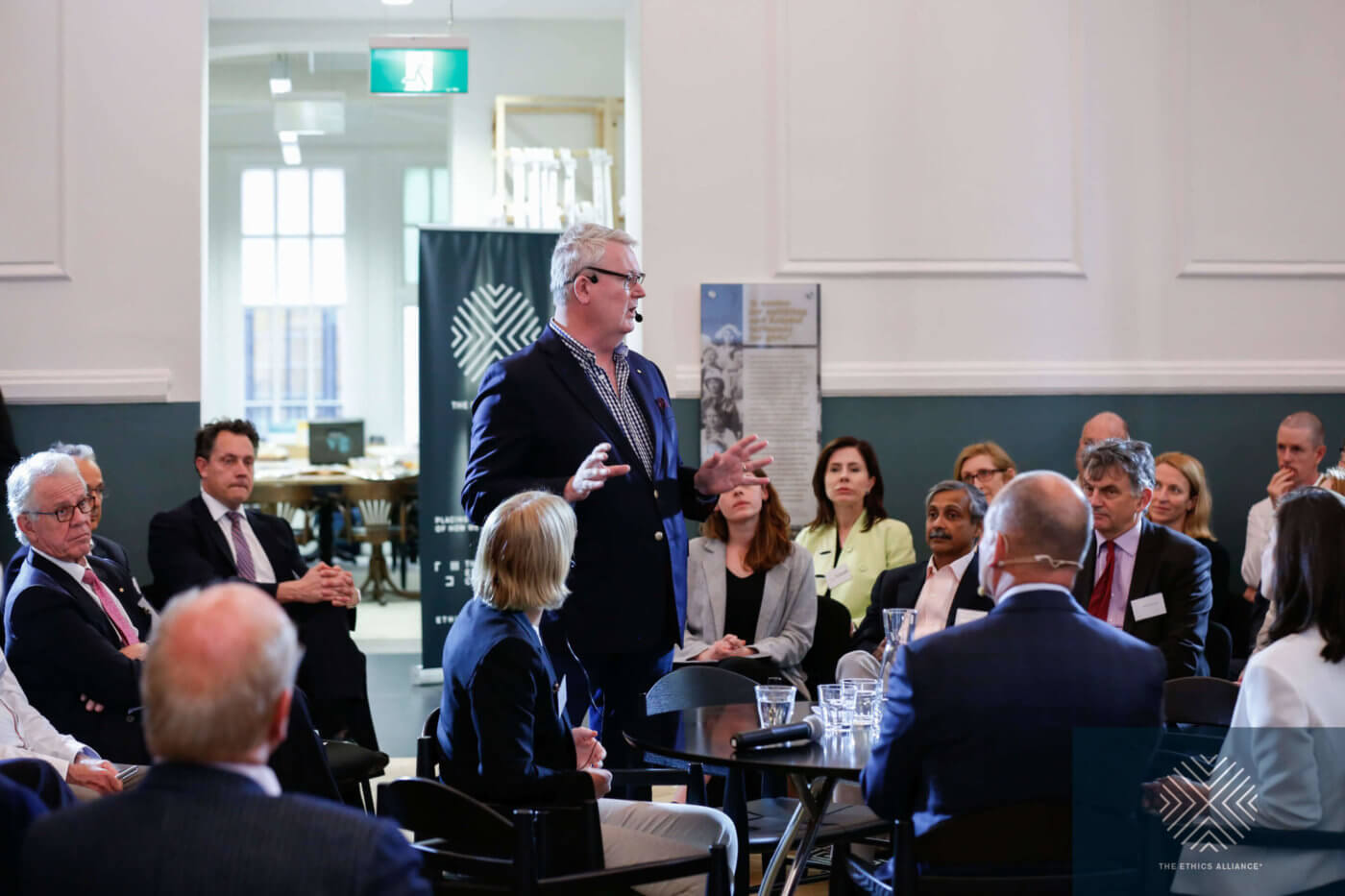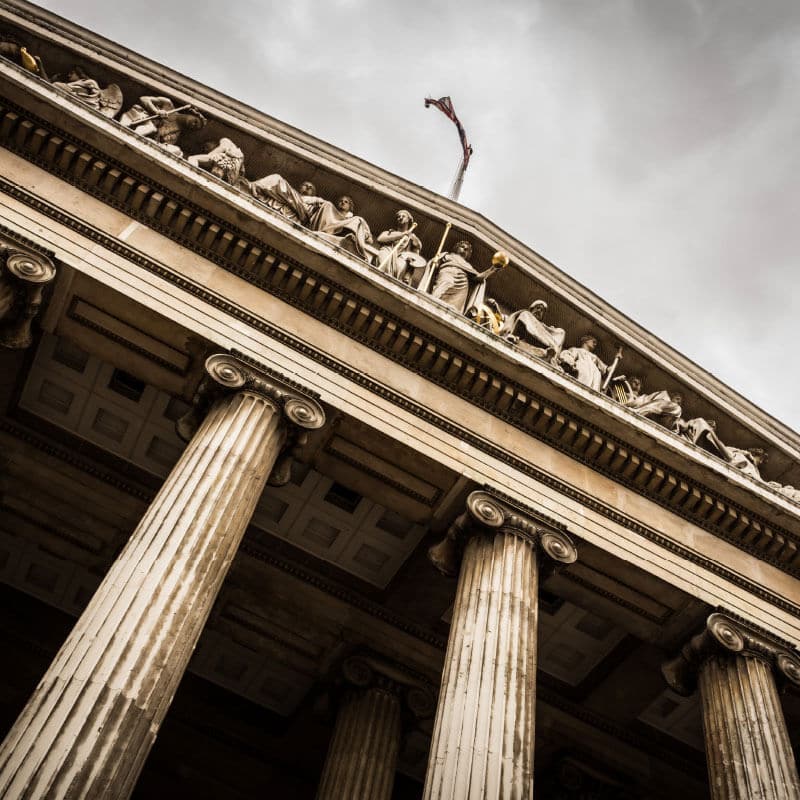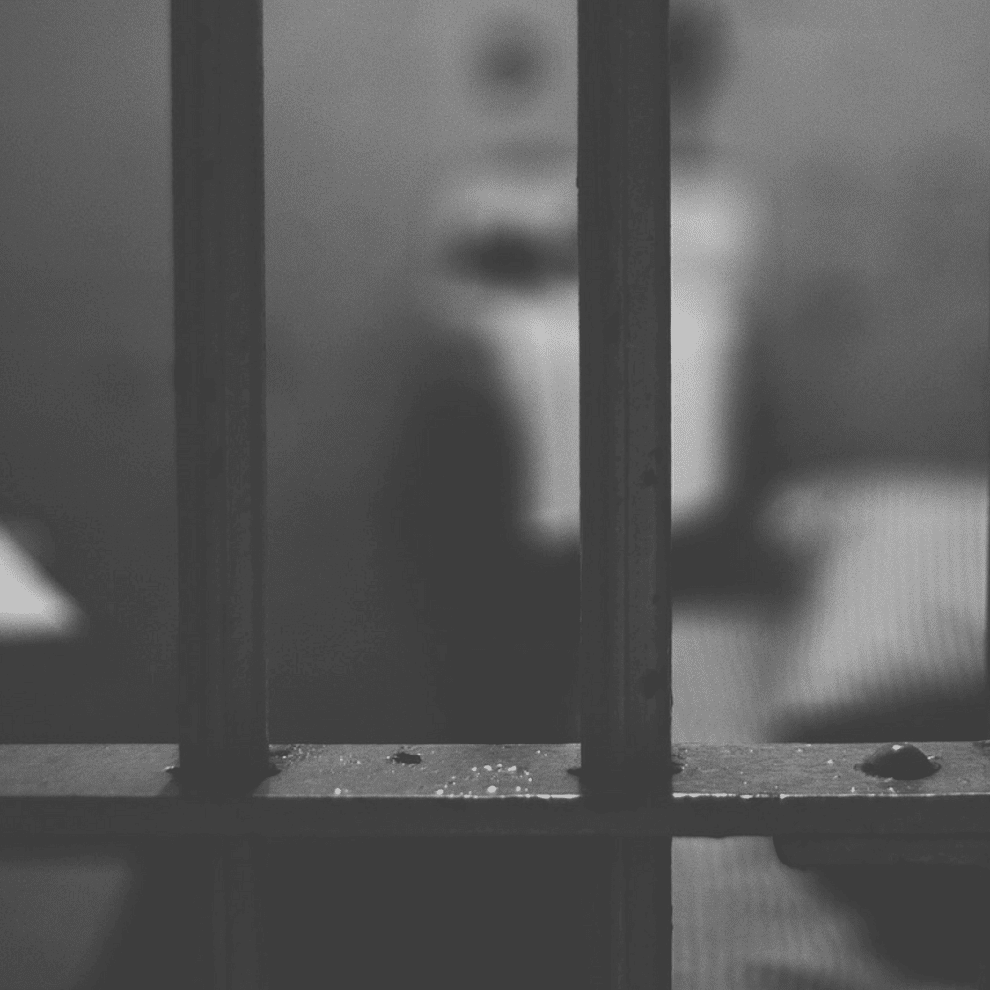Are diversity and inclusion the bedrock of a sound culture?

Are diversity and inclusion the bedrock of a sound culture?
Opinion + AnalysisBusiness + Leadership
BY Alison Woolsey The Ethics Centre 14 AUG 2018
We need to think about diversity in the workplace beyond gender, argues Alison Woolsey, Director of Diversity & Inclusion at Clayton Utz, a member of The Ethics Alliance.
In December 2017, Chartered Accountants Australia NZ, The Ethics Centre, Governance Institute of Australia, and Institute of Internal Auditors released a publication titled Managing Culture – A good practice guide.
Inspired by the discussion, I wondered how important the link between diversity and inclusion (“D&I”) and a sound culture in which ethical decision making is a given? Being able to point to clear evidence of a link could only advance the case for D&I in our organisations and help address any resistance to change.
A lot has changed in the Australian market. In spite of, and perhaps because of, the Hayne Royal Commission and its fallout, the connection is worth exploring. It’s a topic that has been investigated by others in the past – certainly with a gender diversity focus. For example:
- Professor Robert Wood of the University of Melbourne’s Centre for Ethical Leadership, summarised several articles and studies linking more women on boards and in senior management with improved risk management and corporate governance
- The above paper references a study which found Fortune 500 companies with a higher percentage of women on their board of directors were more likely to be on Ethisphere Institute’s list of the World’s Most Ethical Companies.
- ‘The Lehman Sisters Hypothesis’, a study that concludes empirical literature backs the claim “more gender diversity in finance, and particularly at the top would help to reduce some of the behavioural drivers behind the crises”.
A little less on point, but worth noting as it often comes up in gender diversity discussions, is John Gerzema and Michael D’Antonio’s 2013 book, The Athena Doctrine: How Women (and the Men Who Think Like Them) Will Rule the Future. It offered a global survey of 64,000 people and revealed that two thirds felt the “world would be a better place if men thought more like women”.
What I would like to focus on here, however, are two key and interrelated theses around diversity and inclusion and their role in driving workplace culture:
- Diverse teams drive better decision making.
- Inclusive workplaces inspire better team performance (as well as employee satisfaction, success and security).
If these theses hold true (and I consider each in more detail below), the unavoidable conclusion could be that D&I helps shape an organisation’s culture for the better, and will be increasingly valued – and even demanded – by boards and investors as corporate governance rules are strengthened and companies’ social licences to operate come under increased scrutiny.
Diversity is a trigger for better decision making
Much is written about the “value of diverse teams” and “diversity of thinking”. Many leaders and organisations use the expressions liberally when promoting their diversity policies. But do we really understand what these expressions mean?
In her book, Which Two Heads Are Better Than One, Australian author Juliet Bourke acknowledges the collective intelligence that diverse teams can offer, but debunks any theory that it’s easy to achieve through simple gender balance and diversity of background.
Bourke introduces several enablers of diversity of thinking. These include the composition of any group and the process they use to think and debate. Gender balance in a group, she says, “promotes psychological safety and more conversational turn-taking, thereby encouraging people to speak up, offer their views, and elaborate on the ideas of others”. Racial diversity “triggers curiosity, causing people to ask more questions, make fewer assumptions, listen more closely, and process information more deeply”. Age and geographic location also play a role.
In addition to this, we need to consider more direct factors – firstly, diversity of approach to problem solving. Bourke identifies six key individual approaches to problem solving but notes we tend to focus on two in particular. She says that by deliberately taking a more balanced approach, groups report they reduced blind spots and “were able to develop more robust solution” and moreover “followers report greater faith in the ultimate solution”.
The second direct influence on diversity of thinking comes from the mix of functional roles such as general counsel, chief risk officer, and chief HR officer. These executive positions expose members to different domains of knowledge and social networks, Bourke says.
This theory challenges the simplicity of the proposition that having women in a group mitigates risk. Australian academic Cordelia Fine similarly dismisses the existence of any gender gap in risk taking in her 2016 book, Testosterone Rex. So too does Elizabeth Sheedy, who concludes in a 2017 study that senior female bankers don’t conform to stereotypes and are just as ready to take risks.
This rich research linking gender diversity and improved business performance suggests organisations also need to consider a wider range of diversity forms beyond women to men ratios. When you begin to grasp the complexity of optimal diversity, you begin to realise the opportunities and value that teams can deliver or destroy.
Inclusion and workplace performance
Achieving the ideal diversity mix in any group is no mean feat. However, a group can still underperform if its members do not feel included.
According to the Diversity Council of Australia, inclusion occurs when a mix of people are respected, connected, progressing, and contributing to organisational success. Deloitte’s HR research body, Bersin, shows organisations with inclusive cultures are six times more likely to be innovative, anticipate change, and respond effectively, and twice as likely to meet or exceed financial targets.
We see evidence that inclusion is associated with being treated fairly and respectfully, being valued for one’s uniqueness and sensing group belonging. The Deloitte Inclusion Maturity Model identifies the highest level of inclusion as being when people report feeling both psychologically safe and inspired to do their best work. At a more granular level, this is about people feeling (or leaders encouraging people to feel) they can contribute in a meeting, have a voice in decisions affecting them, and can disagree or challenge group decisions.
Leaders are instrumental in creating a culture of inclusion. Diversity commentators and practitioners largely agree on a common set of leadership capabilities including being collaborative, accountable, open and curious, a champion of diversity, and relational. A big piece in the discussion on inclusive leadership is the importance of counteracting biases and assumptions in decision making. In recent years, not only have we seen a growing level of awareness of unconscious biases but also a push to explore practical ways (policies, processes and structures) to mitigate against them.
Positive traits of an inclusive leader include being particularly mindful of personal and cultural biases like confirmation bias and groupthink. Juliet Bourke also highlights the importance of leaders being cognisant of the situations and factors such as time pressures and fatigue which can cause them to be vulnerable to such biases.
As several authors have argued, there was potential for diversity of thinking and good decision making in the Enron board, but the decisions “concerned matters of high complexity, difficulty and moral uncertainty” and ultimately it succumbed to groupthink, says Bourke.
Does diversity and inclusion lead to sound culture?
If we have ideal diversity in a team and have cultivated inclusion through good leadership, does a sound organisational culture necessarily follow?
Logically, yes. We’ve canvassed positive outcomes such as good decision making, effective team work, psychological safety, and innovation. We’ve considered the impact of leaders being more open and curious, conscious of biases, and accountable. In both the Managing Culture paper and APRA’s report on the Commonwealth Bank, we see references to the need for improved behaviours of boards and senior leadership along the lines of these themes. If D&I doesn’t at least influence ethical behaviour or underpin the concept of an ethical framework, it would be easy to argue inclusive leadership can facilitate embedding an ethical framework.
McKinsey in its 2018 update suggests that, for many companies, D&I is a “matter of license to operate”. This is a theme at the heart of proposed changes to the ASX Corporate Governance Council’s Principles and Recommendations. In a substantial redraft of principle 3, the current words of “act ethically and responsibly” become “instil and continually reinforce a culture across the organisation of acting lawfully, ethically and in a socially responsible manner”. The ASX says that “preserving an entity’s social licence to operate requires the board and management of a listed entity to have regard to the views and interests of a broader range of stakeholders than just its security holders, including employees”. It goes on to suggest this may include, by way of example, “offering employment to people with disability or from socially disadvantaged groups in society”.
On one view this could be saying good culture drives greater levels of diversity, and not vice versa. What’s interesting though is the earlier editions of the Principles and Recommendations also included diversity under principle 3. It was then relocated in 2014 to Principle 1: “lay solid foundations for management and oversight”. In my view, D&I sits comfortably under both principles – a recognition of it being business critical but also critical for ‘good’ or ‘right’ decisions.
More reflection on the point may be required but I think investors and our regulators should care about what organisations are doing to make D&I a priority in the way they conduct business and as employers. D&I may be an undervalued lever to promote positive change in business behaviours and workplace cultures in Australia. The world’s largest asset manager BlackRock has identified board diversity as a “stewardship priority”. Larry Fink recently wrote in his annual letter to CEOs:
“We also will continue to emphasize the importance of a diverse board. Boards with a diverse mix of genders, ethnicities, career experiences, and ways of thinking have, as a result, a more diverse and aware mindset. They are less likely to succumb to groupthink or miss new threats to a company’s business model. And they are better able to identify opportunities that promote long-term growth.” – Larry Fink
It makes sense to continue to make the case for diversity and inclusion as being a driver of positive change – for business, and for the community.
Alison Woolsey is director of Diversity & Inclusion at Clayton Utz, a member of The Ethics Alliance.

This article was originally written for The Ethics Alliance. Find out more about this corporate membership program. Already a member? Log in to the membership portal for more content and tools here.
Ethics in your inbox.
Get the latest inspiration, intelligence, events & more.
By signing up you agree to our privacy policy
You might be interested in…
Opinion + Analysis
Business + Leadership
Do Australian corporations have the courage to rebuild public trust?
Opinion + Analysis
Business + Leadership, Science + Technology
Is technology destroying your workplace culture?
Opinion + Analysis
Climate + Environment, Business + Leadership
We’re in this together: The ethics of cooperation in climate action and rural industry
Explainer
Business + Leadership
Ethics Explainer: Consent
BY The Ethics Centre
The Ethics Centre is a not-for-profit organisation developing innovative programs, services and experiences, designed to bring ethics to the centre of professional and personal life.
Why do good people do bad things?

Why do good people do bad things?
Opinion + AnalysisBusiness + Leadership
BY Daniel Effron ethics 14 AUG 2018
Why do good people do bad things? When we know someone to be a fine and moral person in other respects, we are flabbergasted when they get caught for dodging their taxes, fiddling their expenses, or abusing their positions of power.
Social psychologist Daniel Effron says traditional assumptions about why good people transgress are “naive”.
We may think they go through a logical progression of weighing the costs and benefits. Can they get away with it? How much can they gain from cheating? How severe is the punishment?
“This is not nuanced enough”, counters Effron.
“In fact, the average person cares a lot about feeling – and appearing – virtuous.”
Rather than asking themselves if they can get away with it, they instead ask if they can do it without feeling like a bad person, says Effron, Associate Professor of Organisational Behaviour at the London Business School.
Effron’s research examines how people act in ethically questionable ways without feeling unethical. He was speaking an Ethics Alliance panel on Embedding Values & Principles in June.
People cheat less than they can get away with
Experiments which involve people rolling a die in private, where no one can see them, find that people cheat (but only a little bit) when they are told the higher the number they roll, the more money they will get.
“They want to get something good for themselves, even if it means being dishonest, but they don’t want to feel like a terrible human being, so they don’t cheat as much as they could”, says Effron.
This finding implies that monitoring an organisation to ensure no one is dishonest can be a very costly and impractical exercise. Netflix, instead, decided to stop policing its expense reports.
Former Netflix chief talent officer Patty McCord explains, “In talking that through with employees, we said we expected them to spend company money frugally, as if it were their own. Eliminating a formal policy and forgoing expense account police shifted responsibility to frontline managers, where it belongs.
“It also reduced costs: Many large companies still use travel agents (and pay their fees) to book trips, as a way to enforce travel policies. They could save money by letting employees book their own trips online”, McCord writes in the Harvard Business Review.
People cheat more if they can maintain a positive self view
Effron says his research shows people look to their moral track records, to spot evidence they are a good person.
If they can point to some good deeds, they feel they have some “moral credentials”, or moral licence, when they engage in “ambiguous behaviours”.
For instance, a study shows that when people express a preference to buy environmentally friendly products (which makes them feel more ethical) they are also more likely to lie, cheat, and steal money from the experimenter.
Effron says this implies it may be effective for organisations to remind people of their ethical commitments. “When people make public commitments, they feel obligated to follow through with them”, he says.
It does not work so well just to emphasise the good things people have done. “If you emphasise ethical achievements, people feel they have ticked the box and they may be more likely to relax their striving for ethical goals.”
People cheat less when ethics are top of mind
People may know where the ethical “line in the sand is” but, as they edge closer, the line fades and, whoops, before they know it, they find themselves on the other side.
“What can we do to stop this ethical fading? Keep ethics top of mind” – Daniel Effron
A study at the London Business School finds people are more honest in filling out forms if they have to sign at the top that everything they are about to say is true, rather than signing at the bottom that everything they just said is true.
This is because they have been prompted to think about ethics before they give their answers, rather than afterwards.
This suggests organisations should routinely discuss ethics in decision making, with reminders in the workplace to keep ethics top of mind.
People may admit the deed, but not the motivation
The executive director of Corruption Prevention at the Independent Commission Against Corruption (ICAC) Lewis Rangott, says people rarely see themselves as immoral.
Very few people will admit they have been “the bad guy”, says Rangott, speaking at the Ethics Alliance event in Sydney.
“We will put them in the box, they will have to swear on the Bible and we will show them the evidence of them engaging in criminal behaviour – like a film or video – and eventually, they will admit to the deed, but very rarely will they admit to the corrupt intent. They always have a little excuse for themselves”, says Rangott.
“Giving yourself this little mental permission slip, even for the very serious stuff, seems to have something in common with regular dishonesty and also very serious misconduct and white collar crime.”
Rangott says that while the threat of an ICAC investigation may be a useful tactic to keep people honest, fear is the wrong motivation for the right behaviour. People should be intrinsically motivated to do the right thing.
Organisations can use workplace stories to encourage honesty and integrity. When someone gets fired for bullying, or the CEO thanks a whistleblower in public, that gives people the right role-modelling.
“A nice cheap and easy way to get ethics in your organisation is, without faking it, get some of these stories going in your organisation. Something people will talk about in the pub is where the real embedding happens”, says Rangott.
However, all the time, money and effort spent on embedding values gets sucked down the drain as soon as a “jerk” gets promoted. “You have to be careful who you promote. People are so good at spotting the tiniest bit of hypocrisy.”

This article was originally written for The Ethics Alliance. Find out more about this corporate membership program. Already a member? Log in to the membership portal for more content and tools here.
Ethics in your inbox.
Get the latest inspiration, intelligence, events & more.
By signing up you agree to our privacy policy
You might be interested in…
Opinion + Analysis
Business + Leadership, Science + Technology
Is technology destroying your workplace culture?
Opinion + Analysis
Business + Leadership, Politics + Human Rights
Australia is no longer a human rights leader
Opinion + Analysis
Business + Leadership
The pivot: ‘I think I’ve been offered a bribe’
Opinion + Analysis
Business + Leadership, Society + Culture
Access to ethical advice is crucial
BY Daniel Effron
Daniel Effron is Social Psychologist and associate professor of Organisational Behaviour at London Business School.
BY ethics
The Royal Commission has forced us to ask, what is business good for?

The Royal Commission has forced us to ask, what is business good for?
Opinion + AnalysisBusiness + Leadership
BY The Ethics Alliance The Ethics Centre 13 AUG 2018
AMP Capital was applauded last year when it committed to selling $600 million worth of shares that did not meet its ethical guidelines. However, barely a year after announcing it was getting rid of its direct and indirect interests in tobacco and landmines, AMP was itself ejected into a basket of “untouchables”.
Australian Ethical announced in May it was divesting itself of AMP shares in the wake of searing revelations from the Financial Services Royal Commission.
Billions of dollars were wiped from the value of AMP after the public and investors discovered the wealth manager charged “fees for no service” and steered people into investments that rewarded their financial planners, at the expense of the clients.
Head of ethics research at Australian Ethical, Dr Stuart Palmer, says there were a number of reasons behind the decision to divest, “… but specifically, a senior decision made within the financial planning business to charge clients fees for services they weren’t receiving. They knew it was wrong, they knew it was illegal.
“There were people in the business saying we need to stop doing this, and they kept doing it at a senior level”, he says.
The Royal Commission into Financial Services has been exposing the rot eating away at some of our biggest and most powerful corporations and has reenergised an ongoing debate about what is the actual purpose of business and who it serves.
Palmer says legal cases in the US established shareholder primacy a century ago, with the primary responsibility of business interpreted as creating profits for shareholders.
“Since then, and before then, there has been a debate about whether that is right, whether there are other ways of thinking about corporations having independent interests and responsibilities to all their stakeholders, including shareholders, but also employees, customers, suppliers and society”, says Palmer.
“None is necessarily dominant over the others, but they need to be balanced in the interests of all.”
This discussion about the role of the corporation is being weighed up at all levels, including by the chairman of NAB, Ken Henry, who delivered a speech in March saying that it was not enough for companies to use the “pursuit of profit” to explain away their contribution to negative consequences, such as greenhouse gas emissions and other forms of pollution.
“If that’s the best we can do, then we shouldn’t wonder that we find it so difficult to occupy positions of trust and respect in society. Neither should we wonder that politicians of all political colours have such an uneasy relationship with us”, he told a gathering of the Australian Institute of Company Directors.
This was a debate that the Commonwealth Bank non-executive director, Harrison Young, was alluding to when he wrote last year, “banks should not be profit-maximising institutions. They have duties to the community that oblige them to forego a certain amount of upside”.
Judith Fox, the CEO of the Australian Shareholders Association, says she is aware of increasing numbers of companies and boards having this discussion.
“I’m seeing a lot of conversations that ultimately are all about how something needs to change in the way we operate”, she says.
“I think we are one of those transition periods where there has been a social norm that the purpose of a company is shareholder return and that has been accepted in markets worldwide for four decades”, she says, adding the realisation that companies should stand for more than just profits may come as a surprise to people whose knowledge of economics does not extend further back than US economist Milton Friedman’s pronouncement in 1962 that there is only one social responsibility of business and that is to make money.
Friedman wrote in Capitalism and Freedom:
“There is one and only one social responsibility of business – to use its resources and engage in activities designed to increase its profits so long as it stays within the rules of the game, which is to say, engages in open and free competition without deception or fraud.”
Fox says the current debate about the role of the corporation is a return to the concept, popular in the 1930s – that business had a social role to play as well.
Professor of Human Rights Law at Sydney University, David Kinley, agrees that many people’s attitudes are formed by what they have experienced in the past 20 years.
“It is what they have seen since the 80s, which has been a long – until 2008 [the start of the Global Financial crisis] – largely uninterrupted boom period.”
Kinley says Scottish economist and philosopher Adam Smith would be horrified to see the societal cost of rampant free marketeers.
Smith had written in The Wealth of Nations, nearly 250 years ago:
“… that individual acts of economic self-interest combine, through the ‘invisible hand’ of market forces, to further the best interests of society at large”.
Says Kinley, “So, he certainly would be turning in his grave to see all this wealth, so much of it is now concentrated in the hands of the few. Yes, we are better off than we were 200 years ago. Unquestionably. But by God, it’s been at a big cost to the notions of equity and fairness.
“And [investor] Warren Buffett says often – and he is the second richest man in the world – he said he is amazed there are not more people with pitchforks heading for the rich like him because he can’t see how they don’t appreciate this appalling inequality.”
Kinley, author of Necessary Evil: How to Fix Finance by Saving Human Rights, says he is not advocating some sort of Socialist revolution, but remaking the “financial, commercial, corporate neoliberal system that we now have one that works better for people as a whole”.
“If you don’t do that, you have a bubbling up of disquiet, of resentment, that no matter what happens – even things like the global financial crisis – the rich, the powerful, the banking, the financial system, they sail through it, on the back of public funds that bailed them out because they had to be saved. When people ordinary people look at that, they say, ‘How is that fair?’.
“So you get the reaction of, ‘Well, let’s vote in somebody who is willing to drain the swamp, you know, shake up the area and I don’t care if he’s mad or narcissistic or a nincompoop. You put him in there in the White House and just see what happens.’
“These sorts of reactions are almost desperation. I don’t think they are logical, I don’t think they are at all laudable, but you see why people are doing it.”
While there is evidence ethical investments outperform the average large-cap Australian share funds over three, five and 10 year time horizons, Kinley maintains corporations and their executives should be ethical because it is the right thing to do, not because it might make them money.
“What I would suggest what all of us want to do in the morning, truly, is to stand in front of the mirror as you’re brushing your teeth and say, ‘I’m proud of what I do or at least I can see why I do what I do and it is something that is worthwhile’.
“You don’t want to look in the mirror and think, ‘Oh I’m making a lot of dosh, but Geez it is dodgy’.”

This article was originally written for The Ethics Alliance. Find out more about this corporate membership program. Already a member? Log in to the membership portal for more content and tools here.
Ethics in your inbox.
Get the latest inspiration, intelligence, events & more.
By signing up you agree to our privacy policy
You might be interested in…
WATCH
Health + Wellbeing, Business + Leadership
Moral injury
Opinion + Analysis
Business + Leadership
Is employee surveillance creepy or clever?
WATCH
Business + Leadership, Climate + Environment, Science + Technology
How to build good technology
Opinion + Analysis
Business + Leadership
Accepting sponsorship without selling your soul
BY The Ethics Alliance
The Ethics Alliance is a community of organisations sharing insights and learning together, to find a better way of doing business. The Alliance is an initiative of The Ethics Centre.
BY The Ethics Centre
The Ethics Centre is a not-for-profit organisation developing innovative programs, services and experiences, designed to bring ethics to the centre of professional and personal life.
A win for The Ethics Centre

A win for The Ethics Centre
Opinion + AnalysisBusiness + LeadershipSociety + Culture
BY The Ethics Centre 17 NOV 2017
The Ethics Centre was announced the 2017 winner of the Optus MyBusiness Awards Training Education Provider of the Year, for our innovative business ethics education program.
The prestigious annual event is Australia’s longest running awards program for SMEs. 150 finalists attended the award ceremony at Sydney’s Westin Hotel where the winners were announced across 28 award categories.
The Ethical Professional Program is our core professional education program, centred on applied ethics, quality decision making, professional practice and leadership. Exclusively devised for financial advisors, brokers, bankers and those who work alongside them, it has been rolled out across the financial service sector.
Participants who have completed the program tell us it helped them build stronger relationships with colleagues and clients, link everyday decisions back to their organisation’s strategy and purpose, and deal with complex issues as they arise.
The program consistently achieves high net promoter scores and positive feedback that indicates participants not only leave with new skills but enjoy the process too – not something you hear every day about ethics education!
We take our role as a leading provider of ethics education very seriously. As events in the world continue to shock, scare and surprise us, and our trust in core institutions appears to plummet, it can seem as if people care less and less about ethics. Our experience tells us otherwise. The people and organisations we work with across our ethics, leadership and learning programs are hungry to explore what they value, the principles they hold on to, and how to make their way through some of the most difficult ethical challenges we face today.
Our organisation has been involved in learning and education for over 25 years and are thrilled to be recognised for the transformative programs we deliver in ethics education.
As an independent non-profit specialising in ethics, we’ve been asked by many organisations, industries and governments, both locally and internationally, to provide a different kind of education and training experience.
Each of our education and training programs challenge participants to think differently – to critically examine other opinions, be consistent in their judgements, and make responsible and considered decisions. They provide the skills and tools to understand and resolve the multitude of difficult ethical challenges we all face as part of our personal and professional lives.
Ethics in your inbox.
Get the latest inspiration, intelligence, events & more.
By signing up you agree to our privacy policy
You might be interested in…
Opinion + Analysis
Business + Leadership
Banks now have an incentive to change
Opinion + Analysis
Society + Culture
8 questions with FODI Festival Director, Danielle Harvey
Opinion + Analysis
Business + Leadership, Politics + Human Rights
Do diversity initiatives undermine merit?
Opinion + Analysis
Relationships, Society + Culture
If we’re going to build a better world, we need a better kind of ethics
BY The Ethics Centre
The Ethics Centre is a not-for-profit organisation developing innovative programs, services and experiences, designed to bring ethics to the centre of professional and personal life.
A radical act of transparency

A radical act of transparency
Opinion + AnalysisBusiness + Leadership
BY The Ethics Centre 13 NOV 2017
The Australian Olympic Committee had been through a six month media firestorm by the time its new CEO, Matt Carroll, got his hands on a confronting review of the organisation’s culture.
The AOC had been battered by a succession of negative events. Its former CEO, Fiona de Jong, had resigned in a blaze of headlines while their longstanding president John Coates had fought off a bruising challenge to his leadership in a publicised election campaign.
Some of its most senior executives received allegations of bullying and poor behaviour. Part of its 36 staff complained the AOC was the most dysfunctional place they’d ever worked. There was even an ugly rift between the AOC and the Australian Sports Commission, which funds high performance sports.
What’s more, the medal tally from athletes in the most recent summer Olympic Games in Rio had been disappointing – our worst in 15 years.
Even with Carroll in place as the new “cleanskin” CEO, the damaging headlines were showing no sign of abating. With the results of the 64-page cultural review in his hands, Carroll knew the bad news would keep leaking out.
So he and Coates decided to publish the review’s findings and its 17 recommendations on its website and release them to the media – effectively putting the organisation’s “dirty laundry” on the table for all to see.
“Why? We knew we were going to get criticised, and we did. We knew we were going to get held up and ridiculed, and we did”, says Carroll today.
“We copped a bit of a battering in the media for a week, but I know that the national sporting federations had a great deal of respect for us doing it.”
“But there was one question I couldn’t have answered if we hadn’t done it and it was: ‘What are you hiding?’ And that would have dragged us backwards.”
They concluded the only way to move on and put their troubles behind them was to engage in an act of radical transparency.
A ‘brave’ decision
The independent review, conducted over two months by The Ethics Centre, was not initially intended to be a public document. But when the report finally landed in the AOC boardroom – a frank appraisal of all that was wrong with the organisation, and what they needed to do to fix it – the decision was quickly made to go public.
“The transparency involved in publishing the report is very good for my purposes in changing the organisation because it is out there”, Carroll says.
“There can be no pushback … It sets a standard that this is the way we are going to operate.”
The business community was agog; a corporate leader made a wary comment telling Carroll the move was “brave”.
But while staff and the sporting federations were generally appreciative of the review and the courageous decision to go public with the findings, it was not a painless process.
“It did have an effect on some of the senior managers because there was this inherent criticism of the leadership team – some of whom are new – but they have shouldered that”, says Carroll.
“For the leadership team, there was this feeling they had all been tarred with the same brush and some of them took that quite hard. We have all been tarred a bit, but we have recognised the issues, recognised the problems, we have agreed that we need to make change.”
Coates, however, was accused of sidestepping responsibility for the poor organisational culture when he told a news conference, “The only criticism of me, personally, has been my acrimonious relationship with some stakeholders, particularly [Australian Sports Commission chair] John Wylie, and that has been put in context.”
Extending transparency
One of the findings of the AOC culture review was a lack of transparency around key decisions – like how individual sports are funded, how staff members are selected to work on site at each Olympic Games. This lack of transparency had led to an atmosphere of suspicion and allegations of favouritism.
Carroll intends to usher in a new era of transparency to dispel any suggestion of favouritism.
“Equally, performance is expected. Yes, we can structure everything and will make sure everyone knows their roles and responsibilities. There is a process, and it is transparent, but that doesn’t mean everybody is a winner.
“We are in the business of high performance sport and our athletes expect the same [level of performance] from our organisation. If you don’t perform in your role, yes, you probably won’t get to go to the Games – but you will know why.
“I am always of the view that you tell the truth, otherwise it comes around to bite you anyway.”
Carroll says this level of openness does not mean that everyone gets a say. “Transparent decision making doesn’t mean you are standing out there asking everyone’s opinion.
“But there is a process where everyone knows how it works and they know what the expectations are and, therefore, they can measure themselves.”
A culture of stress
“One reason that it was always so frantic was that people made it frantic.”
Having come into his role with a 20 year career in sports management, Carroll says he did not think there were any serious ethical problems at the AOC. He saw it was more of a matter of applying appropriate ethical standards to behaviours – especially at times when the organisation is operating under “emergency mode”, such as Games times.
“I am sympathetic to the stress the organisation is sometimes under. I don’t think there was a massive problem, as big as the media was dressing it up, at all. It was more about settling the organisation down and having those restructured roles and responsibilities”, he says.
“There was a culture of stress. One reason that it was always so frantic was that people made it frantic, rather than taking a deep breath. We are not changing the world, we don’t save lives every day of the week, we leave that to more important organisations. You have got to get people to take a step back and take a deep breath.”
Sometimes, the solution is to be nicer to each other, Carroll says. “You can have a disagreement with people … but, for Heaven’s sake don’t behave like [you are in] a schoolyard. Have respect for people.
“If you have no respect for people then they won’t have respect for you.”
Carroll says sport’s important role in Australian culture is reflected in the community’s high expectations of behaviour.
“That is why sport needs to retain its absolute credibility. If it loses that credibility, those role models – no matter how hard they try – won’t be able to show that influence and leadership.
“We can change lives, we don’t save lives. Sport has got to have its own perspective: it isn’t the be all and end all of the country. There are other far more important aspects of society in Australia than sport.
“We can play that leadership role, we can play that role of setting some standards, but we also must accept, at the end of the day, it is about sport.”
Ethics in your inbox.
Get the latest inspiration, intelligence, events & more.
By signing up you agree to our privacy policy
You might be interested in…
Opinion + Analysis
Politics + Human Rights, Business + Leadership
Political promises and the problem of ‘dirty hands’
Opinion + Analysis
Business + Leadership
Can there be culture without contact?
Explainer
Business + Leadership
Ethics Explainer: Social license to operate
Opinion + Analysis
Business + Leadership
What are millennials looking for at work?
BY The Ethics Centre
The Ethics Centre is a not-for-profit organisation developing innovative programs, services and experiences, designed to bring ethics to the centre of professional and personal life.
In the court of public opinion, consistency matters most

In the court of public opinion, consistency matters most
Opinion + AnalysisBusiness + Leadership
BY The Ethics Alliance The Ethics Centre 13 NOV 2017
If you’re like us, you spend a lot of time reading the business news. And you’re be familiar with a strange paradox: while some highly respected business leaders can be brought to their knees by one poor decision or ethical stumble, there are others that seem to get away with it time after time. In the language of the CBD, they’re Teflon-coated.
It hardly seems fair that those who have spent their career doing the right thing attract more criticism when they fail. But it seems there is nothing the public hates more than a hypocrite.
Psychologist Dr. Melissa Wheeler says hypocrisy is often considered a bigger sin than the transgression itself.
“The thing that really gets people’s attention is someone’s moral hypocrisy – when you say something, but do something very differently. Or you condemn something, but then have been found to be doing it as well”, says Wheeler, who has a PhD in moral and social psychology and is a Research Fellow in the Department of Management and Marketing at the University of Melbourne.
Cyclist Lance Armstrong is therefore judged more harshly because he was a healthy-life champion who was doping himself throughout a career, which included winning seven Tour de France events.
“The thing that really gets people’s attention is someone’s moral hypocrisy – when you say something, but do something very differently.”
Conversely, we shrug off US President Donald Trump’s Twitter diatribes and troublesome behaviour because they’re generally consistent with his career and private life over the decades.
“With Trump, I keep wondering why people aren’t more outraged and shocked at all the things that are coming out, scandal after scandal, and why are people not even batting an eye anymore”, says Wheeler.
“And I think it is because we have come to expect that from him, because it conforms with what you are expecting and it conforms with your stereotype of what he, as a politician, is.”
Surprise makes a scandal ‘stick’
Mud seems to “stick” if someone does the unexpected or flouts their own stereotype, she says.
In the corporate world, Volkswagen’s falsification of its vehicle emissions data became one of the biggest scandals of 2015. It was trading on its “green” credentials, but was lying about its performance.
Organisations cannot even expect that their good record will help insulate them from future mistakes.
“If you do anything to fall from that grace, it is going to be worse”, says Wheeler.
In fact, not only can “good-practise champions” attract more criticism when they fail, they can also draw more scrutiny in the first place, according to the managing director of the Australian Centre for Corporate Social Responsibility, Dr Leeora Black.
“Paradoxically, sometimes companies with stated good intentions are targeted [by activists] more frequently than companies without, simply because they are more likely to respond.”
Black, an advisor with a PhD in Corporate Social Responsibility, says change campaigners will target companies that already have expressed a commitment to be socially responsible. “They know they will get more traction from those companies than companies that don’t care.”
“Paradoxically, sometimes companies with stated good intentions are targeted more frequently than companies without, simply because they are more likely to respond.”
Activists target companies they can change
Public opinion and media coverage often follow the activists, which goes some way towards explaining why socially responsible companies get more flak for their ethical breaches, she says.
“Normally, without that targeting by activists, if a company is doing well and it stumbles, stakeholders are more likely to give it the benefit of the doubt.”
“Many people have spoken to me about this [phenomenon] in their companies, particularly in the early days, when they get started. Normally, companies that are further advanced in their corporate responsibility journey become more resilient and they also develop stronger relationships with stakeholders and so they are much less likely to suffer that kind of backlash when they do slip”, says Black.
“It is the companies that are newer to CSR that are more likely to get targeted and may be more concerned about it.”
However, fears of harsh judgement should not be a disincentive to hold and display high ethical standards. The business case of corporate social responsibility (CSR) is that the “benefits outweigh the troubles”, she says.
“And the troubles are short term and the benefits are long term.”
Black says the benefits of CSR are better employee attraction and retention, higher employee productivity and organisational commitment.
“For companies listed on the stock exchange, over time, their better performance will be rewarded by shareholders. There is also the opportunity for enhanced risk identification and management, enhanced innovation and improved reputation”, she says.
“But it does take consistency and persistency. You don’t just do one good thing and expect everybody to fall all over the place, gobsmacked about how wonderful your company is. That doesn’t cut it. That is the kind of thing that is more likely to be viewed as hypocrisy.
“Where there are systemic, fundamental, deep-seated commitments being made by the company that are being expressed in its culture and its strategy, then, over time, the persistence and the consistency will be rewarded and the company will become much more resilient to shocks that may happen from an occasional stumble.”
Scandal recovery depends on response
Wheeler says once a scandal has broken, an organisation’s ability to recover will depend on how it handles the aftermath and whether it uses it as an opportunity to grow.
Effective responses include taking responsibility, working around the facts of the transgression, not sweeping it under the rug and providing appropriate explanations for the wrongdoing.
“I think there is a real sincerity in that. So, it is not just like trying to weasel out of the blame.
“And then people like to see that the companies are willing to accept and serve what might be considered an equitable punishment. They want to see there is some punishment for the action and some consistent internal changes – what sort of rehabilitation are they doing?”
University of Pittsburgh researchers studied 100,000 social media tweets to see how the tenor of the public discussion changed in the weeks following Volkswagen’s emissions data scandal.
A sentiment analysis over four separate weeks showed how criticism of the company abated once Volkswagen and the regulators took action.
“Ultimately, if the company’s efforts at recovery are successful, the sentiment returns to a neutral state”
Sentiment about the brand was extremely negative immediately after the news broke, but shifted once the company started recovery efforts (such as an apology and recall) and regulatory agencies placed responsibility with the company.
“Ultimately, if the company’s efforts at recovery are successful, the sentiment returns to a neutral state”, says the study’s lead author, Vanitha Swaminathan, Thomas Marshall Professor of Marketing at the Katz Graduate School of Business at the University of Pittsburgh.
Learning from the experience
The damage to Volkswagen included a plunge in their stock price, government investigations in North America, Europe and Asia, the CEO’s resignation, the suspension of other executives, the company’s 2015 record loss, and a tab estimated at more than $US19 billion to rectify the issues, according to American economist, Boris Groysberg, in the Harvard Business Review.
There are also expected to be long term impacts on the careers of Volkswagen employees. “Our research shows that executives with scandal-tainted companies on their résumés pay a penalty on the job market, even if they clearly had nothing to do with the trouble”, says Groysberg.
“Overall, these executives are paid nearly 4 per cent less than their peers. Given that initial compensation in a job strongly affects future compensation, the difference can become truly significant over a career.
Good news for those who have slipped up is that surviving a scandal can result in a stronger operating performance in the long term – if the organisation has learned from the experience, ejected the wrongdoers and put into place measures to avoid a recurrence.
Researchers at the University of Sussex studied 80 corporate scandals and discovered that although share prices plummeted by between 6.5 and 9.5 per cent in the month after the bad headlines started, the experience could lead to improved performance in the long term. The scandals included breach of contract, bribery, conflicts of interest, fraud, price fixing and other white-collar crimes, as well as personal scandals such as a CEO having an affair, lies on CVs and harassment cases.
Dr Surendranath Jory, who led the study, said safeguards put into place to protect against further abuses seemed to allay investor fears and avoid further drops in a company’s stock price, ensuring they rebound to the levels of their rivals. “Three years on from scandals, the share price performance of firms matched those that had not been affected by scandals.
“Clearly, investors value ethics and they place a premium on it.”
Follow The Ethics Centre on Twitter, Facebook, Instagram and LinkedIn.

This article was originally written for The Ethics Alliance. Find out more about this corporate membership program. Already a member? Log in to the membership portal for more content and tools here.
Ethics in your inbox.
Get the latest inspiration, intelligence, events & more.
By signing up you agree to our privacy policy
You might be interested in…
Opinion + Analysis
Business + Leadership, Science + Technology
MIT Media Lab: look at the money and morality behind the machine
Explainer
Business + Leadership, Politics + Human Rights
Ethics Explainer: Dirty Hands
Opinion + Analysis
Business + Leadership, Health + Wellbeing
David Pocock’s rugby prowess and social activism is born of virtue
Opinion + Analysis
Health + Wellbeing, Business + Leadership
The ethical dilemma of the 4-day work week
BY The Ethics Alliance
The Ethics Alliance is a community of organisations sharing insights and learning together, to find a better way of doing business. The Alliance is an initiative of The Ethics Centre.
BY The Ethics Centre
The Ethics Centre is a not-for-profit organisation developing innovative programs, services and experiences, designed to bring ethics to the centre of professional and personal life.
The pivot: Mopping up after a boss from hell

The pivot: Mopping up after a boss from hell
Opinion + AnalysisBusiness + LeadershipRelationships
BY Rhonda Brighton Hall The Ethics Centre 10 OCT 2017
How would you feel if you had been harassed on an internet dating site and blocked the person, only to turn up for a new job and find out that they’re your boss?
It gets worse. The harassment continued outside of work and then the new boss started “performance managing” the employee out of the business, making complaints about the quality of their work.
This actually happened and I found out about it when the mother of the victim phoned me (as a HR executive) to say, “This is what happened to my son in your business”.
The young man, who we shall call Darren, had been an ambitious high performer. But, after a 12-week period with his new boss, he resigned – blowing up his career to escape the situation.
Now, he was seriously depressed, could not get out of bed and his mother was very concerned about his mental wellbeing.
There was some conjecture it may not have been a coincidence that the harasser had turned up as his boss. He may have deliberately sought to connect with his new team outside work before starting in the job.
The path forward was not totally clear. Darren had not made a complaint himself. It was his mother who made the call and supplied me with screenshots of text messages, without Darren’s consent.
He had also already left the company, but was obviously in a very bad space. Also, if he had resigned because of the harassment, it could potentially be regarded as “constructive dismissal” (an unlawful termination of employment).
And I now had someone working in the business who had apparently been a harasser on social media and had forced his victim out of his job. You don’t want a leader who performance manages people who won’t date them, or even someone who allows that perception to take hold.
It had to be investigated because, if it was true, I couldn’t just leave it as a time bomb waiting for the next person to attract his interest.
My legal and moral obligations were not necessarily the same. I had to respond to the situation as both a HR person and a leader, because I had executive responsibility for the part of the business they both worked in.
From a moral perspective, I had to consider whether my response was an almost parental reaction. Had I wanted to protect an employee who I discovered had been harassed out of his job because a complaint came from his mother?
It was a tricky situation, but we went through a quiet investigative process. I contacted Darren and he didn’t want to come back to the company.
The really important lesson in dealing with cases such as these is to discuss the human impact at the same time that you are discussing the legalities. They need to come together, they can’t be separated.
I arranged for better support and counselling for him. That was a risk because, in a court case, it could have been construed as an admission of responsibility and it could have gone on to become a Workers’ Compensation or Human Rights Discrimination issue.
But there must be a degree of humanity – you can’t just leave someone broken and walk on by.
When I called his former boss into an interview, he became very angry. He said his activity on the dating site was his private life and none of our business.
A mature leader would have disclosed the conflict in their relationship as soon as they started at the company, so that it could be managed ethically. Instead, he went for Darren, hammer and tongs with the performance issue.
We disciplined him and he ended up resigning shortly afterwards of his own free will.
The really important lesson in dealing with cases such as these is to discuss the human impact at the same time that you are discussing the legalities. They need to come together, they can’t be separated.
It is also important to deal quickly with these things because nothing gets better if it festers away. If I look at the really bad cases I have mopped up, there have been a lack of investigative outcomes, a lack of definitive decisions and/or lack of clarity about what will be done.
Some of these cases drag on for years and someone leaves the workforce, broken. They progressively end up in really bad financial shape as well. Time stands still for them because they are either coming into a workplace where someone is continuing to harass them or they are isolated at home. While you’re deciding what to do, the issue is overwhelming their every day.

This article was originally written for The Ethics Alliance. Find out more about this corporate membership program. Already a member? Log in to the membership portal for more content and tools here.
Ethics in your inbox.
Get the latest inspiration, intelligence, events & more.
By signing up you agree to our privacy policy
You might be interested in…
Opinion + Analysis
Climate + Environment, Politics + Human Rights, Relationships
This is what comes after climate grief
Opinion + Analysis
Relationships
Ethics Explainer: Peter Singer on charitable giving
Opinion + Analysis
Business + Leadership, Politics + Human Rights
Berejiklian Conflict
Opinion + Analysis
Relationships
Social media is a moral trap
BY Rhonda Brighton Hall
Rhonda Brighton-Hall is a non-executive director of the Australian Human Resources Institute and founder of MWAH (Make Work Absolutely Human), Chair of FlexCareers, Former Telstra Business Woman of the Year and HR Leader of the Year.
BY The Ethics Centre
The Ethics Centre is a not-for-profit organisation developing innovative programs, services and experiences, designed to bring ethics to the centre of professional and personal life.
United Airlines shows it’s time to reframe the conversation about ethics

United Airlines shows it’s time to reframe the conversation about ethics
Opinion + AnalysisBusiness + Leadership
BY Matthew Beard The Ethics Centre 5 MAY 2017
Have you ever felt like the kind of person who people always go to for advice but never invite out for drinks?
It’s not a lot of fun being the friend they turn to in bad times and the one they forget to call when the going’s good.
Imagine how ethicists feel.
Most people think of ethics when something goes awry, when people don’t know what to do or when someone’s done the wrong thing. Just like the advice-giving friend, ethicists are useful when stuff’s gone wrong but they’re also worth chatting to when things are going well.
It’s true, ethics – and ethicists – helps in those kinds of situations. But the association between ethics and negative circumstances is restrictive. It prevents people from looking for ethical issues before circumstances force them to do so.
This isn’t a campaign for an ‘International Hug an Ethicist Day’ (although it’d be nice). We just want to show how ethics can create meaning and value in the world.
Take the case of United Airlines. Dr David Dao was dragged off an overbooked flight after refusing to give up his seat. United offered hotel rooms and cash to encourage people to volunteer their spot but nobody took the bait. Dao and three other passengers were then randomly chosen and reassigned to another flight.
You don’t need to wait for something to go wrong to check whether you’ve got your ethical house in order.
Dao claimed he had patients to see the next day and refused to move. Video footage emerged of officers dragging him off the plane with a bloodied face. As it turns out, the reason United had to remove passengers was to create space for their own employees.
The reaction was huge. #BoycottUnitedAirlines trended on Twitter and United lost $1.4 billion dollars in share value.
After initially standing firm, United CEO Oscar Munoz apologised on behalf of the airline. The two parties reached a legal settlement. Policies were changed to ensure this wouldn’t happen again. Not long afterward, Munoz sent an email to customers, explaining how it had happened:
It happened because our corporate policies were placed ahead of our shared values. Our procedures got in the way of our employees doing what they know is right.
This isn’t uncommon. Indeed, it’s a danger many organisations and people risk falling into. That United have reached this conclusion and acknowledged it publicly is a step in the right direction.
What is unfortunate is that it took such an unpleasant and commercially damaging incident – not to mention Dao’s suffering – for them to get here. You don’t need to wait for something to go wrong to check whether you’ve got your ethical house in order.
Those who think proactively about ethics are more able to anticipate and overcome challenges. They create a culture where employees regularly flex their ‘ethical muscles’ and are given the freedom to do so.
Engaging in ethics is a proactive process. It’s about identifying what you stand for, what you want to achieve and the right way to do it. At least, it can be.
Instead, it’s often invoked reactively, trying to identify what went wrong and how it can be avoided in the future.
Prevention is better than a cure. Those who think proactively about ethics are better able to anticipate and overcome challenges. They create a culture where employees regularly flex their ‘ethical muscles’ and are given the freedom to do so. Instead of deferring to abstract policies, they’re able to use their judgement to do what’s right according to what the organisation stands for.
This is important considering United’s response. Munoz emphasises the steps United have taken to change their policies to prevent anyone from being thrown off a flight again. But he said the heavy role of company rules was the problem to begin with, saying “our corporate policies were placed ahead of our shared values”.
It’s tempting to think the solution to ethical failure is more rules and stricter codes of conduct. While it’s true sometimes bad policy will be responsible for unethical behaviour, oftentimes more rules can make the problem worse.
Rulebooks are external tools for regulating behaviour. Even though people might be doing the right thing, their capacity to reflect on how they should live can diminish because their ‘ethical muscles’ aren’t strong. Rules and policies can relieve you from thinking about what to do because you can just follow orders and do it.
Our executive director Simon Longstaff explains this with an analogy. If you put someone in a full plaster cast, they’ll stand up straight. However, inside the cast their body will become weaker and weaker until they can’t stand up on their own. Eventually, when the cast comes off or is damaged, they’ll crumple in a heap.
All of this reveals the need to reframe the way we think about ethics. Instead of being about stopping what’s bad, think of it as creating something good.
Relying only on policies to govern behaviour has a similar unintentional weakening effect. Longstaff explains such a system increases risk to itself by reducing the capacity of any single actor to make good decisions when the things are working exactly as they should.
All of this reveals the need to reframe the way we think about ethics. Instead of being about stopping what’s bad, think of it as creating something good.
Encouragingly, there is some evidence United are moving in this direction. As well as acknowledging the need to prevent similar failures in future, Munoz takes the time to imagine a more proactive, ethical role for United:
I believe we must go further in redefining what United’s corporate citizenship looks like in our society. If our chief good as a company is only getting you to and from your destination, that would show a lack of moral imagination on our part. You can and ought to expect more from us, and we intend to live up to those higher expectations in the way we embody social responsibility and civic leadership everywhere we operate.
Of course, as with any commitment to ethical change, words must be followed with action. Yet these sentiments signify a possible shift in the way United thinks about ethics itself. Not only as a way of avoiding bad decisions but as a way of imagining and creating a better organisation and contributing to a better world.
Ethics in your inbox.
Get the latest inspiration, intelligence, events & more.
By signing up you agree to our privacy policy
You might be interested in…
Opinion + Analysis
Business + Leadership, Relationships
Moving work online
Opinion + Analysis
Business + Leadership
How ‘ordinary’ people became heroes during the bushfires
Opinion + Analysis
Business + Leadership
The Ethics Alliance: Why now?
Opinion + Analysis
Business + Leadership, Relationships, Science + Technology
Are we ready for the world to come?
BY Matthew Beard
Matt is a moral philosopher with a background in applied and military ethics. In 2016, Matt won the Australasian Association of Philosophy prize for media engagement. Formerly a fellow at The Ethics Centre, Matt is currently host on ABC’s Short & Curly podcast and the Vincent Fairfax Fellowship Program Director.
BY The Ethics Centre
The Ethics Centre is a not-for-profit organisation developing innovative programs, services and experiences, designed to bring ethics to the centre of professional and personal life.
Doing good for the right reasons: AMP Capital's ethical foundations

Doing good for the right reasons: AMP Capital’s ethical foundations
Opinion + AnalysisBusiness + Leadership
BY Simon Longstaff ethics 21 MAR 2017
Discover the ethical processes behind AMP Capital’s tobacco divestment. There are three years of thinking behind those headlines, explains Simon Longstaff. He was there to help them through.
You may have seen that AMP Capital decided to divest from tobacco and munitions. The organisation will sell A$440 million of tobacco investments and a further A$130 million in cluster munitions and landmines.
Although this is big news, it isn’t the first time a divestment like this has happened in Australia. What makes this news more significant is AMP Capital’s decision hasn’t come from traditional divestment strategies like shareholder activism or social protest. Instead, it is the product of a much larger process of ethical reflection.
This reflection started three years ago, when AMP Capital approached me, wanting to set its entire investment portfolio on a solid ethical foundation. Together, we sought to discover what that foundation might be.
What we learned surprised us. At first, we thought ‘fiduciary duty’ would be the main issue – AMP Capital’s duty to act in the best interests of its investors. AMP Capital is totally committed to discharging this obligation.
However, it turns out that there was another equally important issue – one that is for the most part ignored.
It concerns AMP Capital itself. Is it driven entirely by the ethics of others, washing its hands of all ethical responsibility? Or does AMP Capital have a right to set the ethical boundaries within which it offers its goods and services in the expectation of reward?
We concluded that just as a person can decide not to do something that goes against their conscience, so can a business.
Once we’d agreed on this basic idea, AMP Capital was able to build an ethical investment foundation based on a few core principles that we believed to be self-evident and so firmly grounded as to be uncontroversial. They are:
- No investment may be made if it leads to or supports conduct that violates the principle of ‘respect for persons’. AMP Capital will not invest in entities or activities that undermine fundamental human dignity, like those that treat people merely as a tool for some other end.
- AMP Capital will not enable – or seek to profit from – activities that violate international human rights law.
- AMP Capital will actively consider the extent to which its investments are in entities or products that cause harm. The relevant test is this – to what extent (if any) can this product be used without causing harm to the user or others?
- In assessing harm, AMP Capital will seek to determine the extent any harm is an inescapable side-effect of doing something good. If harm is inescapable, are the adverse side-effects mitigated to the greatest extent possible?
- AMP Capital will have regard to issues of ‘materiality’ – are the ethically problematic issues central to the investment being considered? AMP Capital will also bear in mind whether engagement with a company might be a better route to achieving a positive ethical outcome.
- AMP Capital will be open to being corrected if they’re mistaken about any of the facts or assumptions that have a bearing on deciding if a company’s conduct or products are harmful.
This framework can be applied to any situation. Regardless of the product or moment, it gives a strong ethical foundation for all the choices the company might make in the future.
Good foundations are something that every company needs. If embedded and practiced, they can reassure employees and customers that business choices are based on ethical reflection rather than the pressure of public opinion or the pursuit of profits at all cost. And they bring consistency and confidence to ethical decisions.
I’m very proud to have worked with AMP Capital on developing this framework. I hope it helps them and inspires others to do the same.
MOST POPULAR
BY Simon Longstaff
Simon Longstaff began his working life on Groote Eylandt in the Northern Territory of Australia. He is proud of his kinship ties to the Anindilyakwa people. After a period studying law in Sydney and teaching in Tasmania, he pursued postgraduate studies as a Member of Magdalene College, Cambridge. In 1991, Simon commenced his work as the first Executive Director of The Ethics Centre. In 2013, he was made an officer of the Order of Australia (AO) for “distinguished service to the community through the promotion of ethical standards in governance and business, to improving corporate responsibility, and to philosophy.” Simon is an Adjunct Professor of the Australian Graduate School of Management at UNSW, a Fellow of CPA Australia, the Royal Society of NSW and the Australian Risk Policy Institute.
BY ethics
Between frenzy and despair: navigating our new political era

Between frenzy and despair: navigating our new political era
Opinion + AnalysisBusiness + Leadership
BY Simon Longstaff The Ethics Centre 2 FEB 2017
In years past, one of my roles was to take meteorological readings for the north-west sector of the Gulf of Carpentaria. My job was to relay weather readings to an operator in Katherine.
From there they would be added to the data pool used by the Bureau of Meteorology to track and predict Australia’s weather. Although my part was very basic, it was essential. And so it was that I found myself reading the weather at the height of a tropical cyclone.
I stepped into the maelstrom, physically wrestling the wind and exhilarated by this personal encounter with the unbridled power of nature. Meanwhile, other (perhaps more sensible) people were gathered together in shelters. The same cyclone that made me feel alive left them terrified. One phenomenon, two very different responses.
Whatever divides Trump’s supporters from his critics, they are united by one thing – both groups are being buffeted by powerful winds of change.
For me, that cyclone is like President Trump’s emerging impact on the world. The flurry of claims and counter-claims, fake news, alternative facts and the swirling vortex of presidential orders demonstrate enormous power and have provoked diverse responses.
For some people, President Trump is a thrilling departure from ‘politics as normal’. For others, his conduct is a frightening repudiation of all they believe in. Whatever divides Trump’s supporters from his critics, they are united by one thing – both groups are being buffeted by powerful winds of change. As such, they have a common need to find stable anchor points.
Trump supporters risk being swept away on a tide of populism that knows no boundaries and ultimately eats its own. Critics risk their scepticism giving way to outright cynicism, the kind that inevitably corrodes the bonds of human society. Of the two risks, the latter is the greater. Cynicism often ends in resignation and the hopelessness of despair. Citizens disengage and democracies unravel from within.
Neither outcome – self-defeating populism or rampant despair – is inevitable.
History is full of examples of individuals and societies who have lost their ethical bearings, only later to look back in horror at what has been done.
Core values and principles provide the anchor points needed to hold people steady. They are the ground we return to whenever making conscious decisions about how to live as individuals and as a society. Although the specifics may vary between people, places and times, the basic structure is the same. With one important exception, every human being makes choices informed by their values and principles.
The exception is the problem.
Too often, people act without giving much thought to what they are doing. Instead, habits provide the pattern for accepted behaviour. In these circumstances it is all too easy for good people to drift until they either act badly or become complicit in the bad deeds of others. History is full of examples of individuals and societies who have lost their ethical bearings, only later to look back in horror at what has been done.
An ethical life is a life for the hopeful.
In nearly every case, the majority has made no active choice to take the wrong path. Instead, they have been led there in ignorance by a demagogue or have gone along unwillingly, having lost their capacity to resist to the pits of despair.
At its heart, ethics is about living an ‘examined life’. It is about resisting the temptation to act out of habit alone – even if those habits are virtuous. Although we inherit values and principles from our parents and other people important in our lives, a mature person becomes capable of making these values and principles their own. Their lives will be more than a mere imitation of others. It is only by moving beyond inherited values and moral codes that we can genuinely take responsibility for our own lives.
From a practical point of view, the first step is to establish a conscious, personal inventory of values and principles. You do this by asking “what things are good at their core and worth choosing above other things?” and “what are the right ways to obtain those things?”
An ethical life is a life for the hopeful, a way of living that strengthens the sinews of all those affected by the political project embodied by President Trump. Political bluster can be every bit as dangerous as cyclonic winds. Let’s strengthen the ground on which we meet it.
Ethics in your inbox.
Get the latest inspiration, intelligence, events & more.
By signing up you agree to our privacy policy
You might be interested in…
Opinion + Analysis
Business + Leadership, Society + Culture
Four causes of ethical failure, and how to correct them
Opinion + Analysis
Business + Leadership
Has passivity contributed to the rise of corrupt lawyers?
Opinion + Analysis
Business + Leadership, Relationships
Employee activism is forcing business to adapt quickly
Opinion + Analysis
Business + Leadership, Relationships











